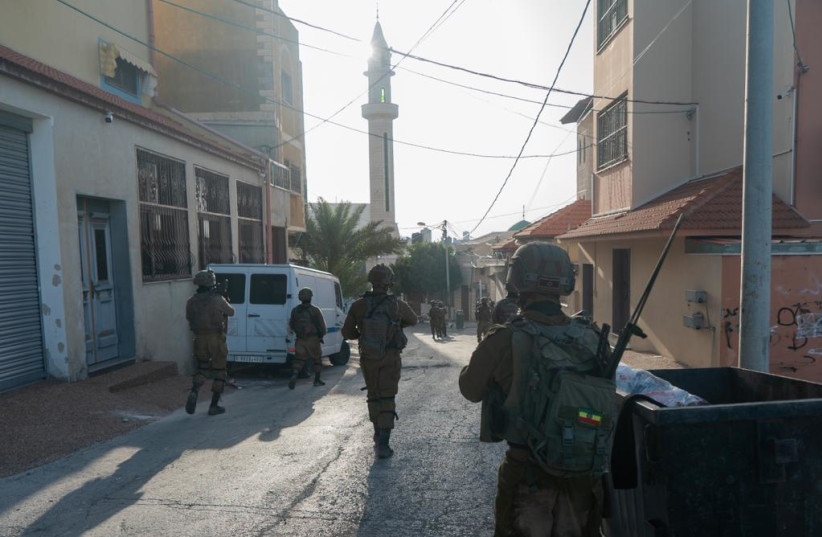Iran knows it can stoke tensions over several thousand miles of potential frontline – including the Gaza Strip, northern Israel and the Golan Heights.

The recent series of terrorist attacks in Israel are of the sort that can easily cause violence to escalate and lead to Iran or its partners, such as Hamas and Hezbollah, to think it is time to challenge Israel.
Last year, a series of incidents in Jerusalem and tensions over Sheikh Jarrah led to Hamas firing rockets at Jerusalem. This led to a short war between Israel and Hamas. It was a war whose tempo was largely dictated not only by Hamas but by Iran.
The war in May 2021 taught us several lessons. First was that Iran and Hamas were willing to use incidents in Jerusalem to justify massive rocket fire on Israel. Second, Hamas had planned this war for some time, stockpiling rockets to fire in large salvos of up to 140 at a time.
Iran likely coordinated with Hamas on those attacks. Iran wanted to use Hamas not only to fire rockets indiscriminately; it also wanted to use drones and long-range rockets to try to carry out coordinated attacks on infrastructure. Iran has also used this model with the Houthis in Yemen, backing attacks on Saudi Arabia and Aramco energy facilities.
This means Iran may believe that with another Ramadan taking place right after several attacks in Israel, it may want to operationalize various groups against Israel. This could involve Palestinian Islamic Jihad, which praised the recent terrorist attack in Bnei Brak. In addition, it could involve groups in Syria or even Iraq.
Last May, Iran used a drone from Iraq to target Israel. Recent reports indicate Israel also used F-35s to shoot down Iranian drones targeting Israel. In addition, the US has downed Iranian drones.
Iran also has assets in Yemen with the Houthis that could be used either against Israel or the Gulf states. This could include targeting shipping, as Iran has done in the past. Recent reports in Iranian media have made veiled threats against the Gulf states.
The foreign ministers of Bahrain, the UAE, Egypt and Morocco were recently in Israel for the Negev Summit. In addition, Israel has participated in several joint military drills with US Central Command, the US Navy and its Gulf partners over the past six months. This is important, and Iran is watching these developments.
Iran knows it can stoke tensions over several thousand miles of potential frontline – including the Gaza Strip, northern Israel and the Golan Heights – or using bases in Iraq and also potentially using drones to target shipping in the Gulf of Oman, as it did last July.
All of this presents a very real threat that is constantly shifting. Iran often tries to use local incidents to stoke a “cycle” of violence that then gives it an excuse to use groups such as Hamas. In the past, Iran has also sent Hezbollah cells with drones to areas near the Golan to target Israel.
Iran also upped threats to Israel in May and June 2019, when it was stoking tensions with the US in Iraq and the Gulf. In 2019 Israel had to neutralize a Hezbollah drone team in the Golan.
In addition, Iran used a drone from the T-4 base in Syria in February 2018 to target Israel. In December 2018, Israel launched Operation Northern Shield to neutralize Hezbollah tunnels in the North.
All of this is connected, and it is worth paying close attention to what Iran’s next move may be over the next month.
Content retrieved from: https://www.jpost.com/middle-east/article-702897.
